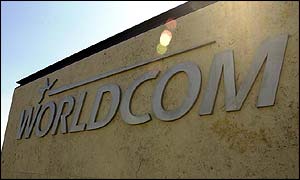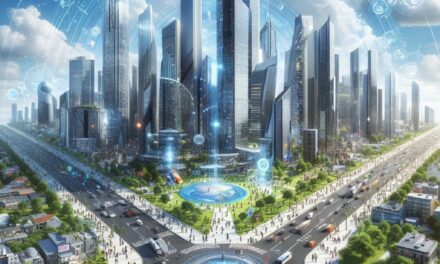“Meet George Jetson
His boy, Elroy
Daughter Judy
Jane, his wife…”
We all know the lyrics from The Jetsons, the 1960s animated sitcom.
Oddly, this show about a futuristic family predicted quite a few modern technologies.
The Jetsons lived in a smart home controlled by voice assistants. The family called each other over videophones and used holograms. They had smartwatches, robotic vacuum cleaners and even digital newspapers.
And of course, there was Rosie the Robot, the Jetson’s robotic maid and housekeeper. She’s one of the family!
Rosie rolled around on wheels and had claw-like arms so she could play sports with the Jetson kids. She spends most of the day cleaning the house with a feather duster and helping Jane around the house.
The idea of having a humanoid robot like Rosie helping out with daily chores seemed impossible forty years ago.
Then again, so did videophones and digital newspapers…
And Rosie might also become a household staple sooner than we think. Humanity is on the verge of one of the biggest technological developments of the new millennium.
It’s what I call the “bot-com” revolution.
And it’s happening sooner than we think…
Rise of the Robots
Last week’s biggest news was Nvidia’s earnings, as the world is focused on advancements in artificial intelligence.
While I listened to the conference call on Wednesday night, I realized that something that Nvidia CEO Jensen Huang said was the real, untold story.
When one of the analysts asked him how Wall Street should think about an eventual return on investment on all the chip spending, he paused for a moment and then started checking off a list of things we already knew, including “Generative AI,” “frontier models” and “more competitors to ChatGPT”.
But then he said something I’ve been telling Strategic Fortunes subscribers about for the past few years:
General robotics are now becoming the physical manifestation of AI in the real world.
The rise of the robots is here, and the world’s most important CEO is now proclaiming it.
Now, you might think to yourself, “Well, we already have robots building cars in factories and packing up Amazon goods in warehouses.”
However, these are primitive bots purposely built to automate just one task.
The new crop of Humanoid robots makes Rosie the Robot look like my Roomba. These robots are intended to look like and mimic humans, which makes them a perfect fit for any workspace or home in our modern world.
Recent advances in robotics and AI have spurned a whole new class of robots that could be headed for delivery in early 2025.
Meet the First Generation of Home Service Robots

Research firm Skyquest predicts the global humanoid market will rise 25-fold from $2.3 billion in 2023 to $58.95 billion by 2031.
The reason for this skyrocketing growth — advances in AI that will help these models train themselves. There’s no longer a need for a human engineer to code everything by hand.
If these robots can do everything a human can (and more), then retail corporations might be very interested…
Walmart Won’t Be Able to Resist Robots
Walmart employs about 2.3 million workers worldwide.
And according to Walmart’s career page, the job description for the typical Walmart worker looks like this:
“Depending on the shift you work, your job could include moving inventory in the backroom, unloading trucks, fulfilling pick-up orders or helping members while stocking shelves.”
That sounds like the perfect job description for humanoid robots.
If we assume that Walmart’s average wage rate is $15 per hour, that adds up to annual labor costs of about $100 billion for its 100% human workforce.
But if a humanoid robot is able to fulfill all the functions the average employee does, Walmart could eventually replace its workers with these robots.
Even with the replacement of just 1% of the workforce, the savings in labor costs can be massive.
A robot can work 7,000 hours per year versus only 2,000 hours for a human worker.
Robots don’t need healthcare. They don’t need retirement plans. They won’t go on strike – well, maybe someday!
It also means Walmart would only need to deploy 6,571 bots to replace 23,000 workers. This is about 1% of their workforce.
If that happened, the annual labor cost savings from just this 1% replacement could be about $660 million.
And if we apply this same math to a 5% replacement scenario, the labor cost savings jump to about $3.3 billion every year!
Now you may be wondering about the cost of the robots, but that’s chump change compared to the labor cost savings.
Let’s take the example of the humanoid robot Tesla is working on — Optimus 2 — because it’s being built specifically for factory and warehouse tasks like the ones mentioned earlier.
Tesla estimates a price of $25,000 to $30,000 per robot.
If Walmart were to get these robots at these prices, under the 1% scenario it would only cost Walmart $197 million on the high end for those 6,571 robots.
Under the 5% scenario, it would only cost Walmart $986 million.
Even if we assume a Cybertruck-like fiasco for Tesla, with the robots costing twice as much as Musk initially estimated, that’s still only about 60% of what it would cost for human labor.
And unlike labor costs, this is not a recurring annual expense. It’s is an occasional investment in machinery for your company — kind of like buying a truck for your business.
Sure, there may be maintenance costs involved, but those wouldn’t be anywhere near as significant as annual labor costs for human workers.
And it’s not just Walmart that would benefit from these types of robots.
Target, Kroger, Amazon, UPS, FedEx and several other companies could see similar benefits from such robots.
Considering that these companies already use highly computerized and machine-driven logistics operations, humanoid robots are just the next logical addition to those ecosystems.
When you think about how much companies can save by adding humanoid robots, the only conclusion is that the “bot-com” revolution will be here sooner than we think.
And it looks like the Jetsons predicted the future yet again.
Until next time,

Ian King
Editor, Strategic Fortunes









